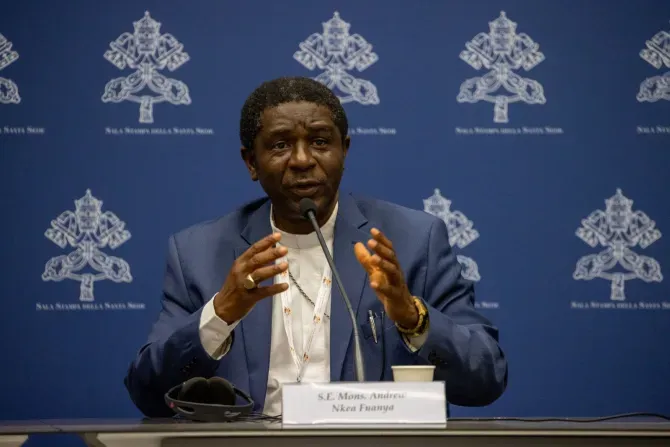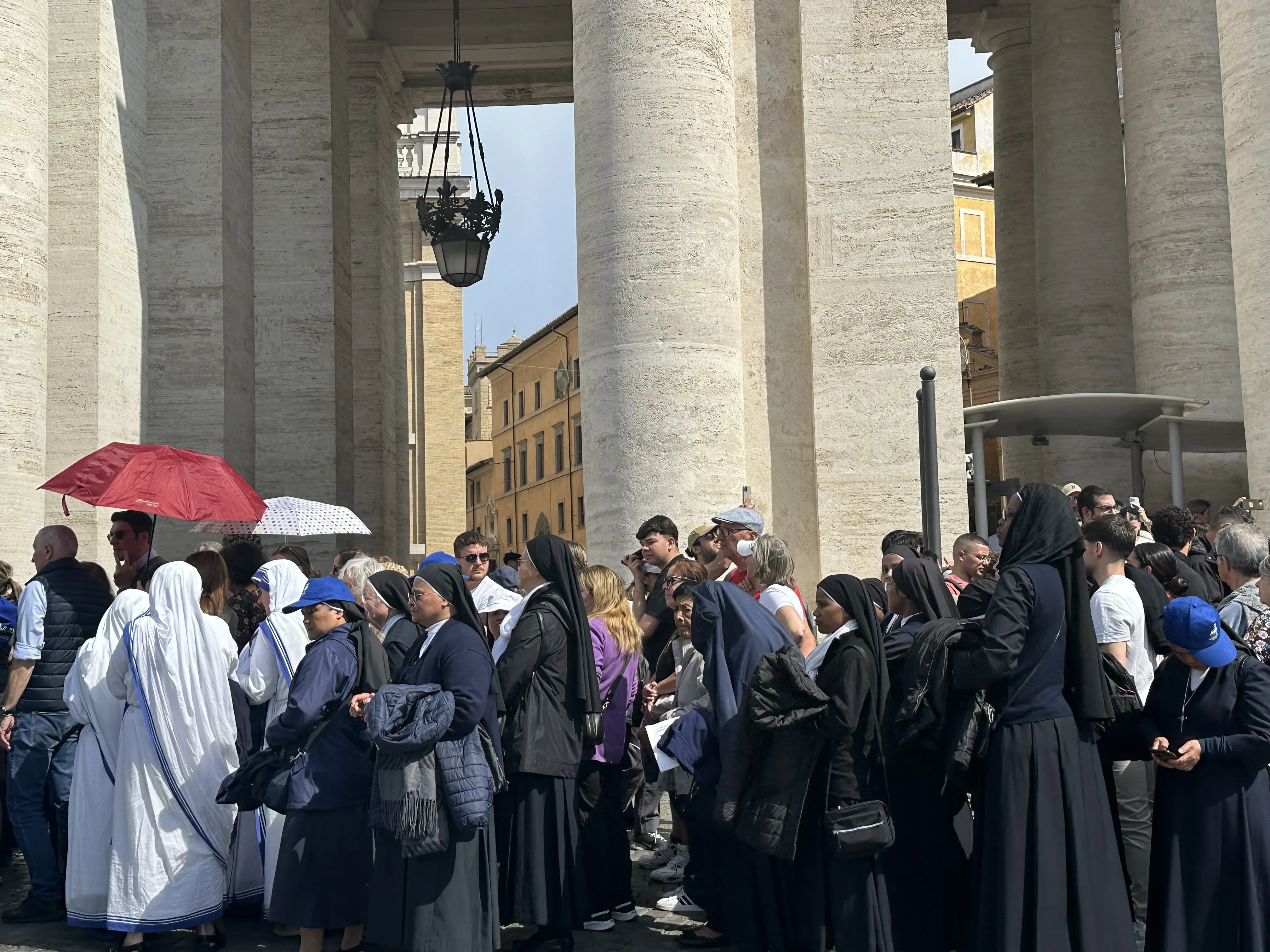Colonization and evangelization
The bishops’ conference of Papua New Guinea and the Solomon Islands has 23 dioceses and a total population of 8 million, 25% of which is Catholic, Wrakia said. Christianity arrived in the two South Pacific countries just 150 years ago.
Papua New Guinea, Wrakia’s country, is “very diverse,” she explained, with 1,000 tribes and more than 800 languages.
The four elements of the indigenous Melanesian spirituality of Papua New Guinea — community living, an integrated worldview, harmonious relationship, and religious rituals — “allowed my ancestors to embrace Christianity and especially Catholicism,” she noted, adding that outside influences, like the colonization of the past and today’s globalization and secularization, now threaten their community life.
A communications official told journalists Oct. 12 that synod discussions the prior afternoon focused on interreligious and intercultural dialogue.
(Story continues below)
“There was a call to strengthen dialogue with Indigenous communities [and to] talk about colonialism and [its] impact on Indigenous communities,” Sheila Leocádia Pires said.
Responding to a question about the colonization of Indigenous cultures by missionaries and “the guilt of the Church with regards to history,” Wrakia drew a comparison between old and new forms of evangelization.
“In those early years, when Christianity first came to Papua New Guinea, that was evangelization. It was how those missionaries knew how to do it,” she said. “And now, in this time and era, we call it new evangelization: where we are more aware of each other’s culture.”
“When missionaries come to us now,” Wrakia continued, “they come with an open mind, respecting the cultures that are already in our land and evangelizing according to how we, the Indigenous people, already believe: respecting our land, respecting our waters, and respecting the way we have been living as a community for thousands of years.”
“So I would say, in those early years, in those previous years of missionary activities, [it] was different. And now it will not be the same method of evangelization,” she said.
“Because now we know each other. And so for the Gospel to take root in this time and era, evangelization has to take a new form. And one of them is listening to us, the Indigenous people, and not just us listening to the foreign missionaries.”
Hannah Brockhaus is Catholic News Agency's senior Rome correspondent. She grew up in Omaha, Nebraska, and has a degree in English from Truman State University in Missouri.









